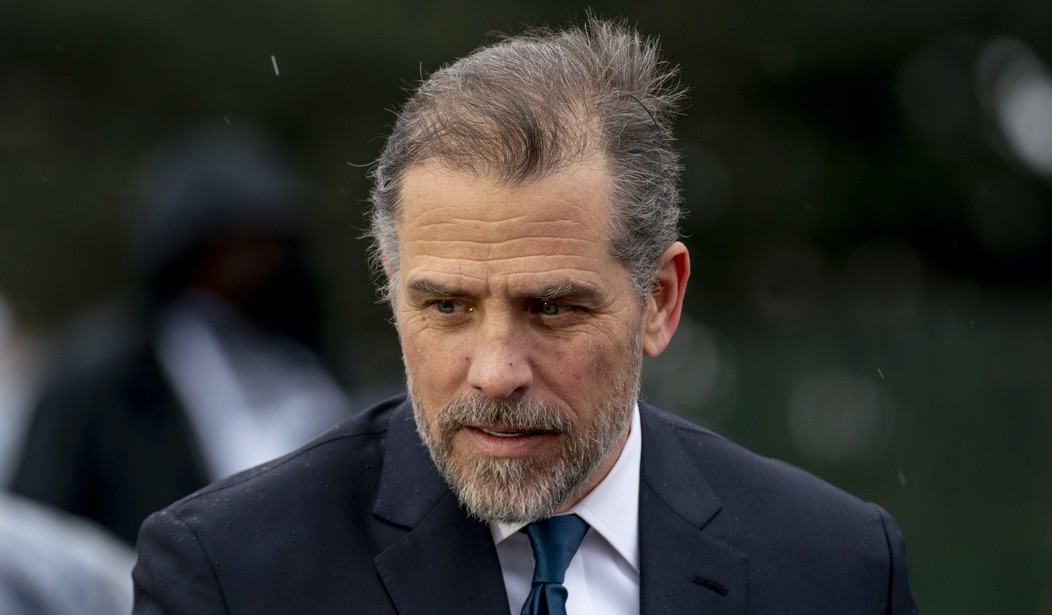The Twitter Files story that Elon Musk released to Matt Taibbi and Bari Weiss last week has a surprising coda. It turns out that the material was being reviewed by Twitter’s deputy general counsel James Baker. As Jonathan Turley points out today, Baker’s name has popped up in connection to a number of major stories in the past few years:
Baker has been featured repeatedly in the Russian investigations launched by the Justice Department, including the hoax involving the Russian Alfa Bank. When Clinton campaign lawyer Michael Sussmann wanted to plant the bizarre false claim of a secret communications channel between the Trump campaign and the Kremlin, Baker was his go-to, speed-dial contact. (Baker would later testify at Sussmann’s trial). Baker’s name also appeared prominently in controversies related to the other Russian-related FBI allegations against Trump. He was effectively forced out due to his role and reportedly found himself under criminal investigation. He became a defender of the Russian investigations despite findings of biased and even criminal conduct. He was also a frequent target of Donald Trump on social media, including Twitter. Baker responded with public criticism of Trump for his “false narratives.”
After leaving the FBI, Baker was hired by Twitter as their deputy general counsel. And his name popped up in the Twitter files released last Friday night:
Global Comms Brandon Borrman who asked if the company could “truthfully claim that this is part of the policy” for barring posts and suspending users.
Baker quickly jumped in to support the censorship and said that “it’s reasonable for us to assume that they may have been [hacked] and that caution is warranted.”
Keep in mind that there was never any evidence that this material was hacked. Moreover, there was no evidence of Russian involvement in the laptop. Indeed, U.S. intelligence quickly rejected the Russian disinformation claim.
Tagging on to Turley’s story, Elon Musk announced that Baker had been “exited” from his role today.
In light of concerns about Baker’s possible role in suppression of information important to the public dialogue, he was exited from Twitter today
— Elon Musk (@elonmusk) December 6, 2022
Apparently Musk asked him to explain his decision to shut down the Hunter Biden story without any evidence and Baker couldn’t really make a convincing case.
Yes. His explanation was …unconvincing.
— Elon Musk (@elonmusk) December 6, 2022
But shortly after that announcement, Matt Taibbi added an addendum to his Twitter Files story about Baker who was apparently vetting the files turned over to reporters without Musk’s knowledge:
We can now tell you part of the reason why. On Tuesday, Twitter Deputy General Counsel (and former FBI General Counsel) Jim Baker was fired. Among the reasons? Vetting the first batch of “Twitter Files” – without knowledge of new management.
— Matt Taibbi (@mtaibbi) December 6, 2022
Baker was also apparently holding up the release of other files that would be part of subsequent stories:
Over the weekend, while we both dealt with obstacles to new searches, it was @BariWeiss who discovered that the person in charge of releasing the files was someone named Jim. When she called to ask “Jim’s” last name, the answer came back: “Jim Baker.”
— Matt Taibbi (@mtaibbi) December 6, 2022
The first batch of files both reporters received was marked, “Spectra Baker Emails.” pic.twitter.com/24a9NhjosB
— Matt Taibbi (@mtaibbi) December 6, 2022
The news that Baker was reviewing the “Twitter files” surprised everyone involved, to say the least. New Twitter chief Elon Musk acted quickly to “exit” Baker Tuesday.
— Matt Taibbi (@mtaibbi) December 6, 2022
With Baker gone, Taibbi says the next installment of the Twitter Files will be published soon by Bari Weiss.
While we wait for that, this piece by Byron York and an earlier one by Miranda Devine is interesting. York notes that the Twitter Files basically confirmed what we already knew, i.e. that Twitter killed a story about Hunter Biden by claiming it was either hacked or some kind of Russian disinformation. Prior to killing the story, Twitter’s head of site integrity, Yoel Roth, had been having regular meetings with the FBI. We know this because Roth filed a statement with the FEC regarding a complaint about Twitter censoring the NY Post story. Here’s what Roth said.
During these weekly meetings, the federal law enforcement agencies communicated that they expected “hack and leak” operations by state actors might occur in the period shortly before the 2020 presidential election, likely in October. I was told in these meetings that the intelligence community expected that individuals associated with political campaigns would be subject to hacking attacks and that material obtained through those hacking attacks would likely be disseminated over social media platforms, including Twitter. These expectations of hack-and-leak operations were discussed throughout 2020. I also learned in these meetings that there were rumors that a hack-and-leak operation would involve Hunter Biden.
So these weren’t merely generic warnings about some sort of follow up to Russia hacking the DNC in 2016, these warnings specifically warned about materials involving Hunter Biden. As Miranda Devine wrote in the NY Post, “It looks very much as if the FBI pre-bunked a story it knew was coming about Hunter Biden.”
Could the FBI have known the story was coming? Well, Devine notes that the FBI had a covert surveillance warrant on Rudy Guliani at the time which would have included information about Hunter’s laptop and emails noting that the story was being prepared at the NY Post.
There’s no proof that happened thus far but it is possible. And here’s where things get interesting. As a private company Twitter can censor whatever it wants on its own platform. And as government agents, the FBI cannot tell Twitter what to censor.
What if the government, through selective leaking of secret information to Twitter officials, created the conditions under which Twitter’s natural response when the New York Post story was published, a response following government guidance, would be to censor the story? If that is the case, then no, the federal government did not violate the First Amendment. Indeed, it would have caused an uproar and would have been a gross violation of the First Amendment had the FBI shut down the dissemination of a press story. So the FBI persuaded Twitter to do it. And since Twitter is a private company — Voila! — there’s no violation of the First Amendment.
In other words, it’s not necessary to assume everyone in government is a thundering moron who would casually order a private company to censor material. People at the FBI were plenty smart enough to know there was a line they couldn’t cross, i.e. they couldn’t tell Twitter to kill the Hunter Biden story. But what they could do was tell Twitter in advance that a story was coming, maybe about Hunter, which was probably a hack and leak operation by a foreign government. And then when just such a story turned up at the NY Post, Twitter would censor it without being told to do it.
Again, I don’t think there’s any proof connecting all of these dots at this point, but it would explain why Twitter immediately jumped to the idea that this was hacked or Russian disinformation when there was no evidence of either.







Join the conversation as a VIP Member